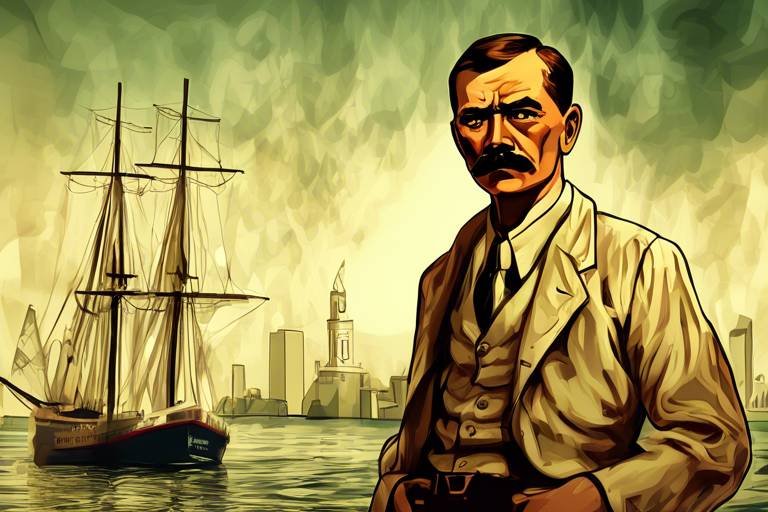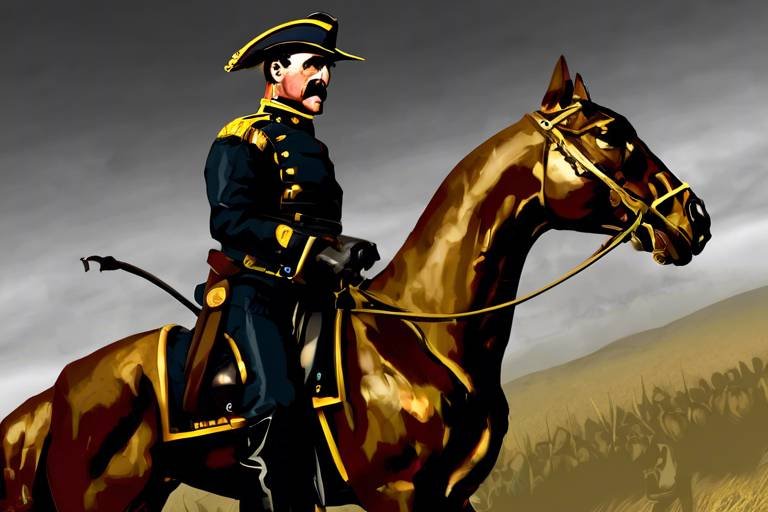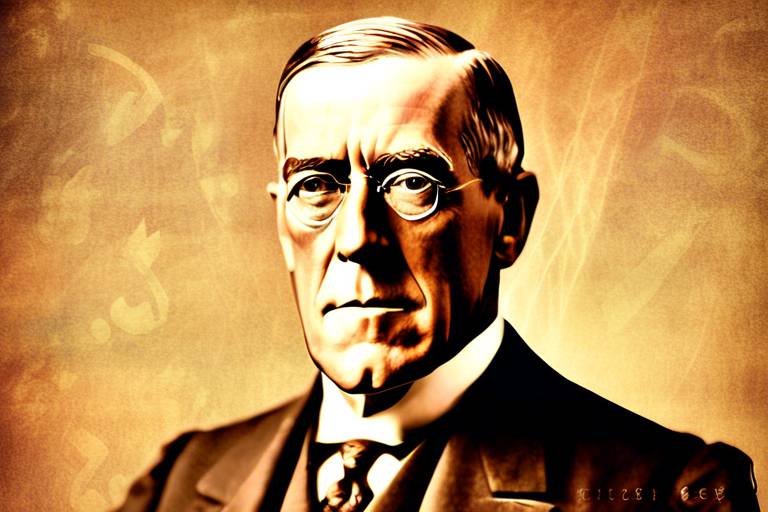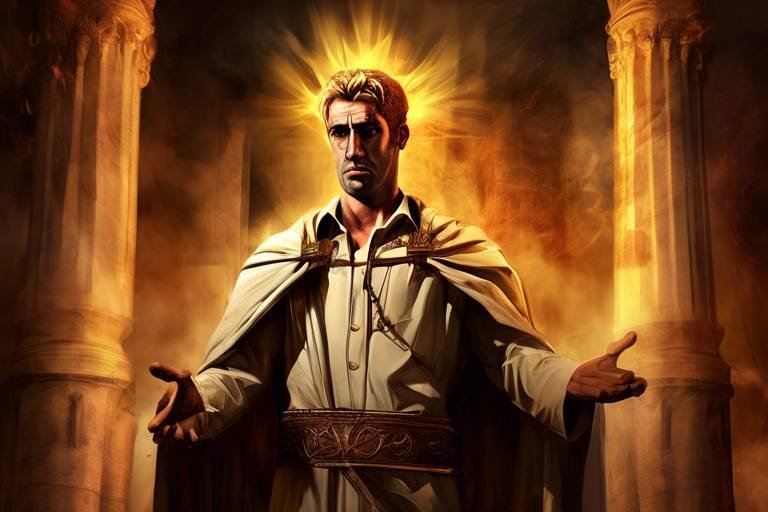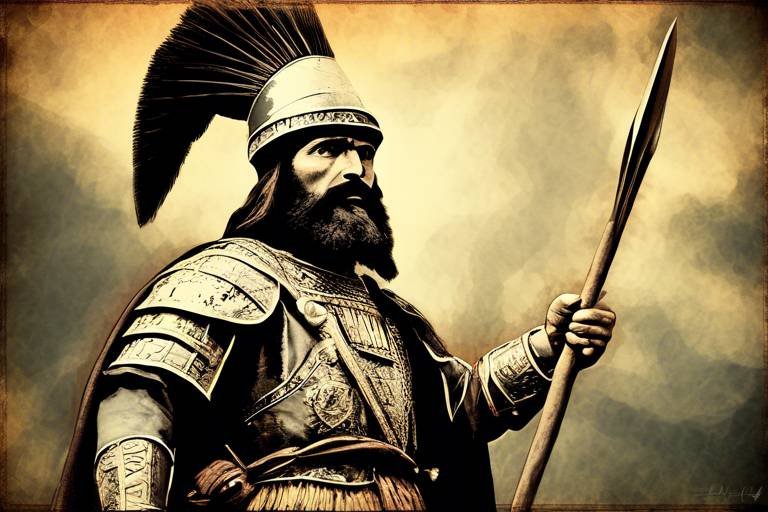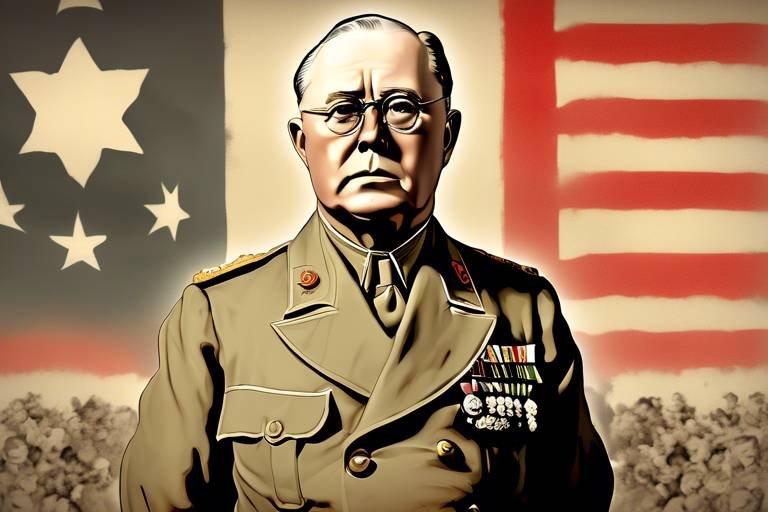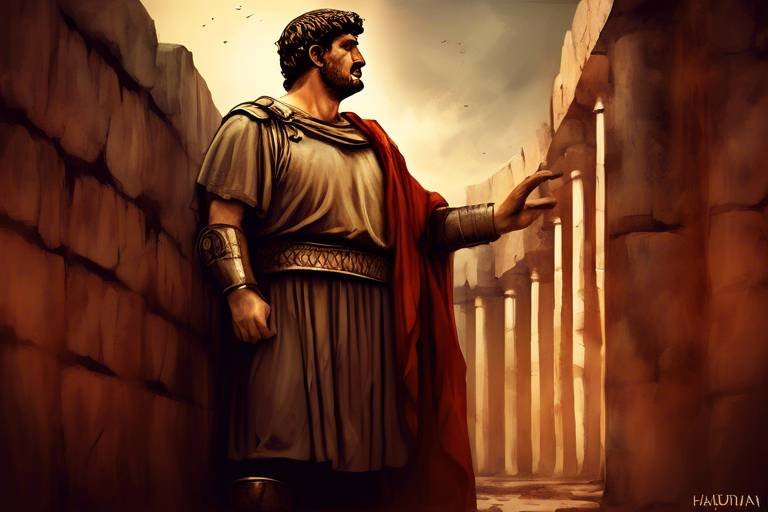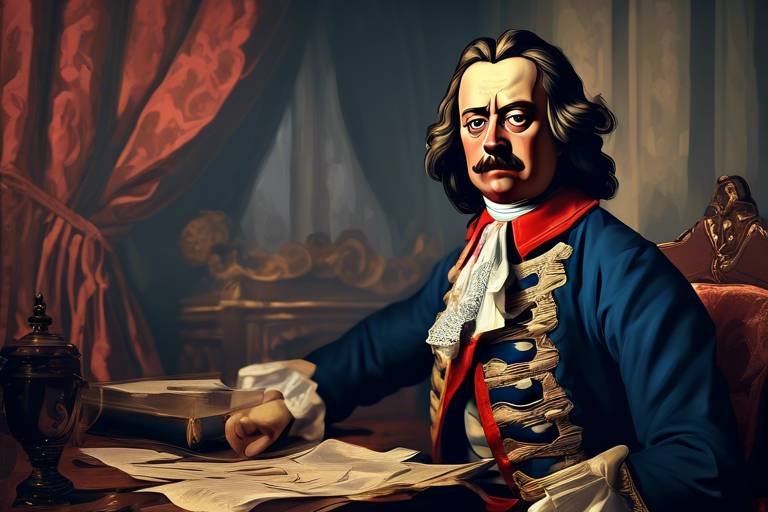Dewey: The Hero of Manila Bay
Admiral George Dewey, known as the Hero of Manila Bay, is a prominent figure in American naval history whose legacy continues to inspire generations. His remarkable leadership and strategic acumen during the Battle of Manila Bay in the Spanish-American War cemented his place as a national hero. Dewey's unwavering determination and tactical brilliance led to a decisive victory that not only showcased his military prowess but also secured a significant triumph for the United States.

Early Life and Naval Career
This article delves into the remarkable life and achievements of Admiral George Dewey, with a special focus on his pivotal role in the Battle of Manila Bay during the Spanish-American War and his enduring influence on American naval history.
Admiral George Dewey's journey began in Montpelier, Vermont, where he was born in 1837. Growing up, Dewey displayed a keen interest in maritime affairs, which ultimately led him to pursue a career in the U.S. Navy. In 1854, he entered the U.S. Naval Academy, where his dedication and strategic acumen quickly set him apart from his peers. Rising through the ranks, Dewey earned a reputation as a respected naval officer known for his foresight and leadership skills.
Upon graduation, Dewey embarked on a distinguished naval career that saw him serving in various roles and commands, honing his expertise in naval strategy and tactics. His relentless pursuit of excellence and his unwavering commitment to duty paved the way for his eventual rise to prominence within the U.S. Navy.
Through his dedication and exceptional performance, Dewey earned the respect of his colleagues and superiors, solidifying his position as a formidable force within the naval ranks. His early experiences and formative years in the Navy laid the foundation for his future successes and contributions to American naval history.
Q: What was Admiral George Dewey's most famous military engagement?
A: Admiral Dewey's most famous military engagement was the Battle of Manila Bay during the Spanish-American War, where his strategic brilliance and leadership skills led to a decisive victory for the United States.
Q: How did Admiral Dewey's legacy impact American naval history?
A: Admiral Dewey's legacy left an indelible mark on American naval history, showcasing the importance of strategic planning, leadership, and innovation in naval warfare. His contributions continue to inspire future generations of naval officers and historians.
Q: What qualities defined Admiral Dewey's leadership style?
A: Admiral Dewey was known for his meticulous planning, decisive decision-making, and unwavering dedication to duty. His leadership style emphasized strategic thinking, adaptability, and a commitment to excellence, setting a high standard for naval officers to follow.

Battle of Manila Bay
The Battle of Manila Bay was a pivotal moment in Admiral George Dewey's career, solidifying his reputation as a brilliant naval strategist and cementing his status as a national hero. In this historic naval engagement during the Spanish-American War, Dewey's squadron achieved a decisive victory over the Spanish fleet, showcasing his exceptional leadership skills and tactical prowess. The battle not only marked a significant triumph for the United States but also highlighted Dewey's strategic acumen and innovative approach to naval warfare.

Strategic Planning
During the lead-up to the Battle of Manila Bay, Admiral George Dewey meticulously crafted a strategic plan that would ultimately secure a decisive victory for the United States. His keen understanding of naval warfare and innovative tactics set the stage for a remarkable triumph that would go down in history.
Dewey's strategic planning began long before the first shots were fired. He carefully studied the geography of Manila Bay, analyzing the layout of the Spanish fleet and identifying key weaknesses to exploit. By leveraging this intelligence, Dewey was able to formulate a comprehensive battle strategy that maximized the strengths of his own squadron while exploiting the vulnerabilities of the enemy.
One of Dewey's key strategic decisions was the timing of the attack. Recognizing the importance of surprise and the element of shock, he chose to launch his assault at dawn, catching the Spanish forces off guard and unprepared. This bold move allowed Dewey to gain the upper hand early in the battle, setting the tone for the rest of the engagement.
Furthermore, Dewey's innovative use of communication and coordination played a crucial role in the success of his strategic plan. By maintaining clear lines of communication with his fleet and ensuring seamless coordination between his ships, Dewey was able to execute his maneuvers with precision and efficiency.
Throughout the battle, Dewey demonstrated exceptional adaptability and quick thinking, adjusting his tactics on the fly to respond to changing circumstances. His ability to think on his feet and make split-second decisions under pressure was a testament to his strategic acumen and leadership skills.
In the end, Dewey's strategic planning proved to be the cornerstone of the American victory at Manila Bay. By outmaneuvering the enemy, capitalizing on surprise, and leveraging his naval expertise to the fullest, Dewey secured a resounding triumph that would solidify his legacy as a master tactician and the hero of Manila Bay.

Legacy and Recognition
Admiral George Dewey's legacy and recognition after the Battle of Manila Bay solidified his status as a national hero and a symbol of American naval prowess. His decisive victory over the Spanish fleet not only marked a turning point in the Spanish-American War but also showcased his exceptional leadership skills and strategic acumen.
Following the Battle of Manila Bay, Dewey received widespread acclaim and honors for his heroic actions. He was hailed as a hero by the American public and the U.S. government, with parades and celebrations held in his honor. The historic victory elevated Dewey to legendary status in naval history, with his name forever linked to the triumph at Manila Bay.
Moreover, Dewey's legacy extended beyond his military achievements. His leadership during the battle inspired future generations of naval officers and served as a testament to the power of strategic planning and decisive action in warfare. Dewey's name became synonymous with courage, determination, and victory, leaving an indelible mark on American naval tradition.
In recognition of his contributions, Dewey was awarded the rank of Admiral of the Navy, a title created specifically for him to acknowledge his exceptional service and leadership. This prestigious honor underscored Dewey's pivotal role in American naval history and cemented his place as one of the most revered figures in the U.S. Navy.

Later Career and Contributions
This article delves into the remarkable life and achievements of Admiral George Dewey, with a particular focus on his pivotal role in the Battle of Manila Bay during the Spanish-American War and his enduring impact on American naval history.
Exploring Dewey's early years, his entry into the U.S. Naval Academy, and his steady ascent through the naval ranks to become a highly respected officer celebrated for his strategic acumen.
Discover the details of the historic naval clash where Dewey's squadron triumphed over the Spanish fleet, showcasing his exceptional leadership abilities and securing a significant victory for the United States.
Delve into Dewey's meticulous planning and flawless execution during the Battle of Manila Bay, highlighting his innovative tactics that outsmarted the enemy and led to a resounding triumph on the battlefield.
Explore Dewey's enduring legacy following the war, including the numerous honors and accolades bestowed upon him for his heroic deeds at Manila Bay, cementing his status as a revered national hero.
Following the Battle of Manila Bay, Dewey continued his service in the U.S. Navy, playing a pivotal role in modernizing the naval fleet and shaping American naval strategy for future generations. His contributions extended far beyond the battlefield, leaving a lasting impact on the nation's maritime capabilities.
Examine Dewey's venture into politics and his significant influence on national policy, as well as his diplomatic endeavors that played a key role in shaping U.S. foreign relations in the early 20th century.
Gain insights into Dewey's personal life, values, and leadership style, shedding light on the man behind the naval uniform and his enduring influence on American history. His character and principles were instrumental in shaping his legacy as a distinguished naval figure.
Reflect on Dewey's lasting impact on American naval history, his vital contributions to the nation's military strength, and his enduring legacy as the valiant hero of Manila Bay, forever etched in the annals of maritime warfare.

Political Influence
Admiral George Dewey's impact extended beyond the waters of Manila Bay, reaching the political realm with significant influence on national policy. His strategic prowess on the battlefield translated into diplomatic finesse, shaping U.S. foreign relations in the early 20th century. Dewey's transition from naval hero to political player showcased his versatility and deep understanding of both military and diplomatic strategies.

Personal Life and Character
Admiral George Dewey's personal life and character offer a glimpse into the man behind the naval uniform, revealing a complex individual with a strong sense of duty and honor. Known for his unwavering dedication to his country and his sailors, Dewey's leadership style was characterized by a combination of strategic acumen and compassion.
Despite his demanding role as a naval officer, Dewey valued his personal relationships and made time for his family and friends. His commitment to his loved ones mirrored his commitment to his duty, showcasing a balance between professional excellence and personal fulfillment.
One of Dewey's defining traits was his integrity and moral compass, which guided his decisions both on and off the battlefield. His reputation for honesty and fairness earned him the respect of his peers and subordinates, solidifying his legacy as a principled leader.
In addition to his military prowess, Dewey was also a man of culture and refinement, with a keen interest in literature and the arts. This well-rounded personality added depth to his character, painting a picture of a multifaceted individual beyond his naval achievements.
Furthermore, Dewey's humility and modesty set him apart from other military figures of his time, as he often downplayed his own contributions in favor of highlighting the efforts of his team. This selfless attitude endeared him to those around him and contributed to his enduring popularity among both the public and his fellow sailors.
Overall, Admiral George Dewey's personal life and character exemplify the qualities of a true hero, defined not only by his military triumphs but also by his integrity, compassion, and humility. His legacy as the hero of Manila Bay extends beyond his naval exploits, leaving a lasting impression on American history and the hearts of those who knew him.

Historical Significance
Admiral George Dewey's historical significance in American naval history cannot be overstated. His leadership during the Battle of Manila Bay not only secured a pivotal victory for the United States but also showcased his strategic brilliance and tactical acumen. Dewey's innovative tactics and meticulous planning during the battle set a new standard for naval warfare, influencing future generations of military leaders.
Furthermore, Dewey's legacy extends beyond his military achievements. His post-war contributions to modernizing the U.S. Navy and shaping American naval strategy have had a lasting impact on the nation's defense capabilities. Dewey's influence also reached into the political arena, where his diplomatic efforts and national policy influence helped shape U.S. foreign relations in the early 20th century.
Despite his monumental achievements on the battlefield and in the political sphere, Dewey's personal character and values also played a significant role in shaping his legacy. Known for his integrity, leadership style, and dedication to duty, Dewey remains a symbol of honor and courage in American history.
In conclusion, Admiral George Dewey's historical significance lies not only in his decisive victory at Manila Bay but also in his enduring impact on American naval history, military strategy, and national policy. His legacy as the hero of Manila Bay continues to inspire admiration and respect, cementing his place as a revered figure in the annals of American history.
Frequently Asked Questions
- Who was Admiral George Dewey?
Admiral George Dewey was a prominent naval officer in the United States Navy known for his role in the Battle of Manila Bay during the Spanish-American War. He was hailed as a hero for his strategic brilliance and leadership in securing a decisive victory for the U.S.
- What was the Battle of Manila Bay?
The Battle of Manila Bay was a significant naval engagement fought on May 1, 1898, during the Spanish-American War. Admiral Dewey's squadron defeated the Spanish fleet in a resounding victory, showcasing his tactical acumen and securing control of the Philippines for the United States.
- What was Admiral Dewey's legacy?
Admiral Dewey's legacy includes his lasting impact on American naval history, his contributions to modernizing the U.S. Navy, and his influence on national policy and foreign relations. He is remembered as the hero of Manila Bay and a symbol of American naval prowess.

